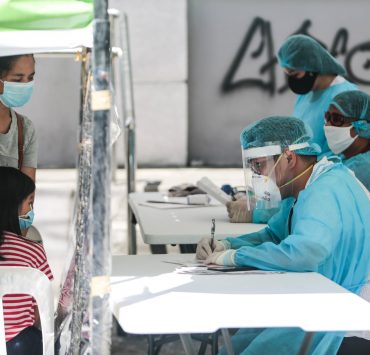The COVID-19 pandemic has given rise to many questions as to what exactly the virus is. Likewise, the spread of the virus has also caused sources of misinformation to proliferate. In order to address these pressing questions and put a stop to fake news, the World Health Organization (WHO) and Johns Hopkins University are giving free online courses about the coronavirus pandemic, infection prevention, risk communication and other public health concerns.
Johns Hopkins is offering their five-hour courses on Coursera, an e-learning platform. The courses, which will run from Mar. 31 to Apr. 4, are designed to be digestible even for those who have no background in science or health. They will be explaining the science behind the virus, how it is identified, measured and combatted.
These courses will also focus on epidemiology, which includes tools for measuring and helping stop outbreaks. They will be taught by epidemiologists from the Bloomberg School of Public Health, namely professor Gypsyamber D’Souza, associate professor Justin Lessler and associate scientist Emily Gurley. Much like in-person classes, the courses will also include quizzes, assignments and peer feedback.
Join #OpenWHO: the free, open-access learning platform for health emergencies. Learn from public health experts about topics including #covid19, risk communication, #ebola, infection prevention & much more.
Almost 1 million enrollments, join us today:
👉 https://t.co/56xVauRTas pic.twitter.com/sLSgWaL2Lu— World Health Organization (WHO) (@WHO) March 27, 2020
WHO has also created a database of online courses that touch on topics related to the pandemic, with an introduction to COVID-19, health and safety, clinical care, treatment facilities and more. You can also learn how to prepare, identify and prevent further transmission of COVID-19 cases. Clinicians are also encouraged to take these lessons to understand symptoms, triage and diagnostics of the virus.
On top of all that, the WHO courses are given in a number of languages, including Italian, Portugese, Turkish, Vietnamese and more. Visit this channel to access these courses (which are held in six UN languages), and this channel for more languages across the globe.
Header image courtesy of Jessica Lewis on Unsplash
Get more stories like this by subscribing to our weekly newsletter here.
Read more:
Debunking COVID-19 myths, part 2
5 free and useful online courses you can sign up for
Free online courses and workshops to keep you productive during quarantine
Writer: THEA TORRES




